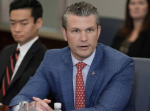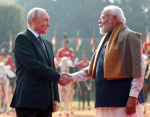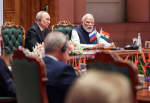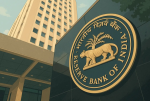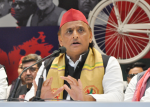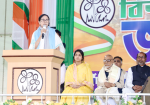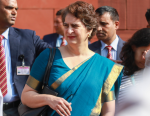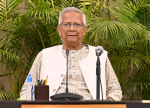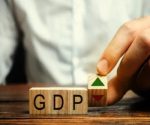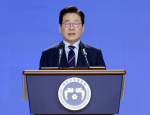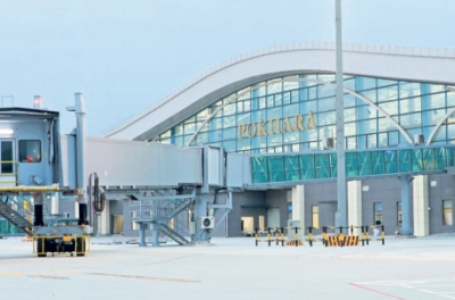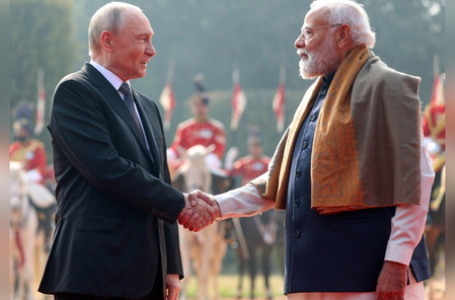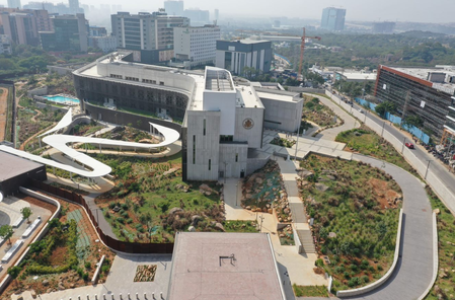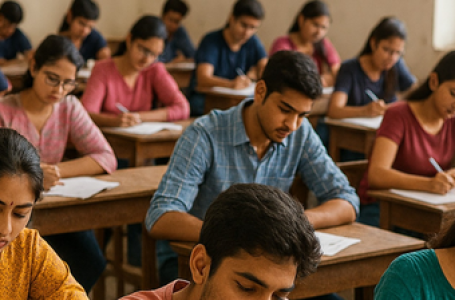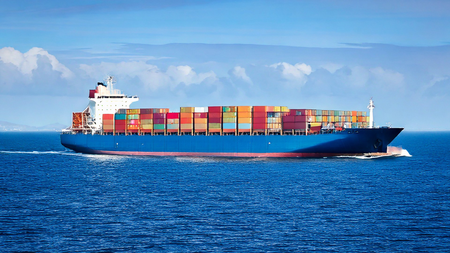
New Delhi: Despite public declarations of solidarity with Kyiv, Europe’s ongoing trade with Russia, especially in energy, continues to funnel billions of euros into Moscow’s war effort. This raises questions about the duality of Europe’s approach, according to a new report.
Data and analysis from 2025 reveal both reductions and paradoxical increases in certain economic spheres, as Europe’s allies to Ukraine inadvertently fuel Russia’s ability to sustain its campaign, according to an article by Anna Mahjar-Barducci published by the Australian Institute of International Affairs (AIIA).
Since the start of Russia’s invasion of Ukraine in February 2022, the European Union (EU) has imposed sanctions targeting Russian industries, banking and individuals. The EU’s intention was to reduce Russia’s ability to finance the war and support Ukraine.
According to Euronews, between early 2022 and mid 2025, EU imports from Russia dropped by approximately 86–89 per cent, while exports to Russia declined by about 58–61 per cent.
However, the article highlights that despite these reductions, the reality is less straightforward. According to Reuters, in the first eight months of 2025, seven EU member states increased their imports of Russian energy relative to the previous year.
The European Union as a whole purchased over 11 billion euros worth of Russian energy during this period, with France’s purchases soaring by 40 per cent (reaching 2.2 billion euros), and the Netherlands’ imports jumping 72 per cent to 498 million euros. Belgium, Croatia, Romania, and Portugal also raised their imports (Belgium 3 per cent, Croatia 55 per cent, Romania 57 per cent, Portugal 167 per cent). Hungary, which has declared it will not send weapons to Ukraine and has refused to participate in arms transfers, recorded an 11 per cent year-on-year increase.
These nations, many publicly supportive of Ukraine, remain major recipients of Russian oil and gas, often through existing infrastructure like the Druzhba pipeline, the article points out.
Several reasons underline Europe’s persistent, and sometimes rising, imports. One is that Russian liquefied natural gas (LNG) entering EU terminals is often shipped onwards and the gas sometimes lands in France or Spain, only to be redirected to buyers elsewhere in the bloc.
Besides, even as maritime imports of Russian crude have been largely banned, pipeline flows and indirect deliveries via “shadow fleets” and third-party intermediaries help Russia bypass restrictions and retain profit, the article observes.
According to Reuters, since the start of the war, European payments for Russian energy have amounted to more than 213 billion euros, steady revenue for Moscow even as overall reliance dropped. In 2024, EU imports of Russian fossil fuels exceeded the bloc’s financial aid to Ukraine, with purchases surpassing 18.7 billion euros while direct support to Kyiv lagged behind. The Center for Research on Energy and Clean Air (CREA) described this dynamic as “a form of self-sabotage,” arguing that Russian energy revenues remain the single largest funding source for the war, the article states.
The structure of this economic relationship is multifaceted. While energy (especially oil and gas) was once the dominant flow, other goods have persisted despite sanctions. In 2024, the EU exported about 31.5 billion euros in goods to Russia and imported approximately 35.9 billion euros. Trade continues in sectors such as chemicals, machinery, vehicles and fertilisers.
Russia continues to be the EU’s largest supplier of fertiliser as its share in extra-EU fertiliser imports rose from 28 per cent in Q1 2021 to 34 per cent in Q2 2025. These patterns underscore that, even under sanctions regimes, tariffs and regulations face limits in curbing dependency in certain sectors, the article points out.
Overall trade volumes with Russia are at their lowest since 2002. While most member states have significantly reduced economic interactions with Russia, some continue importing Russian energy at levels that sustain Kremlin revenue.
According to the article, The uncomfortable truth is that European allies of Ukraine, in seeking to balance their own energy needs and economic resilience, have enabled Russia to weather much of the sanctions pressure and maintain its military campaign. As the war enters its fourth year, the challenge for EU policymakers is whether they can fully align their support for Ukraine with stricter enforcement and closure of remaining trade, finance, and energy loopholes that continue to enable Russia’s war-economy, the articles concludes.
IANS




